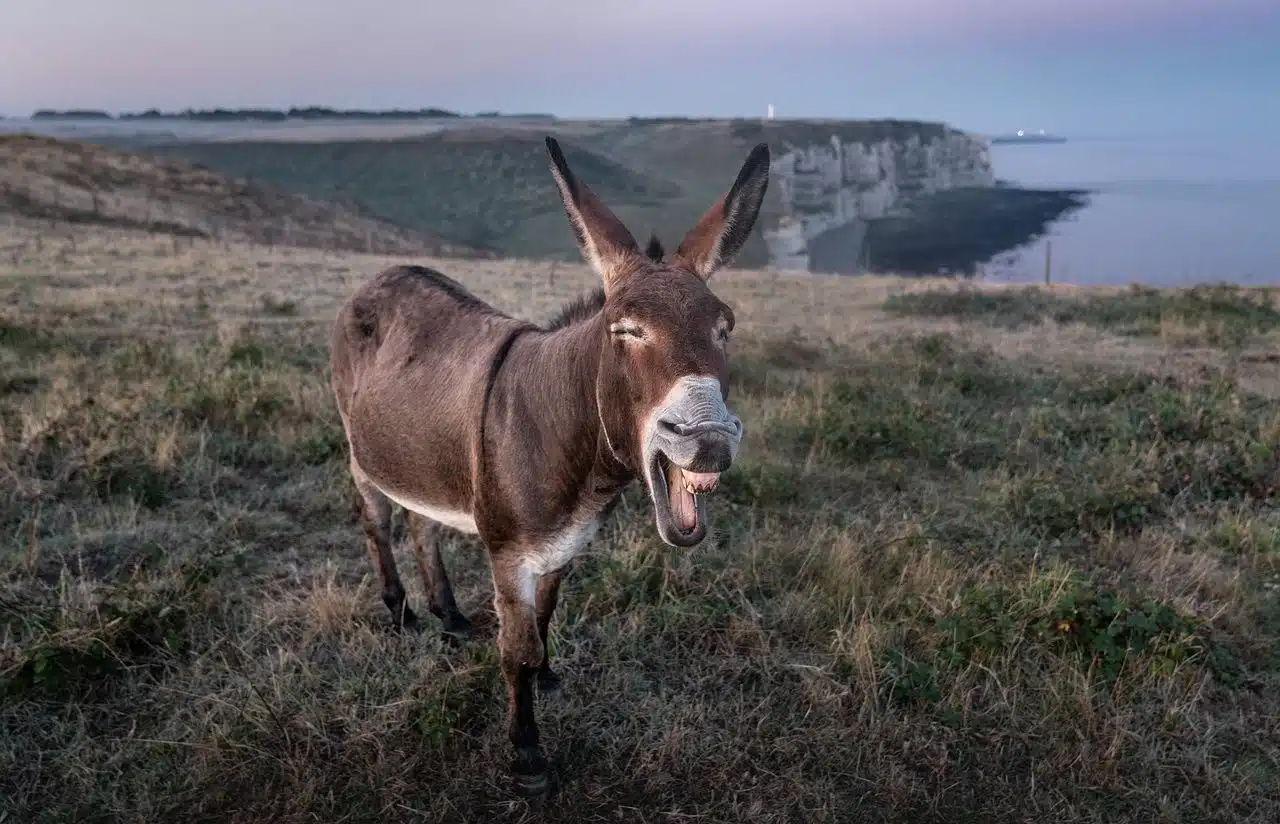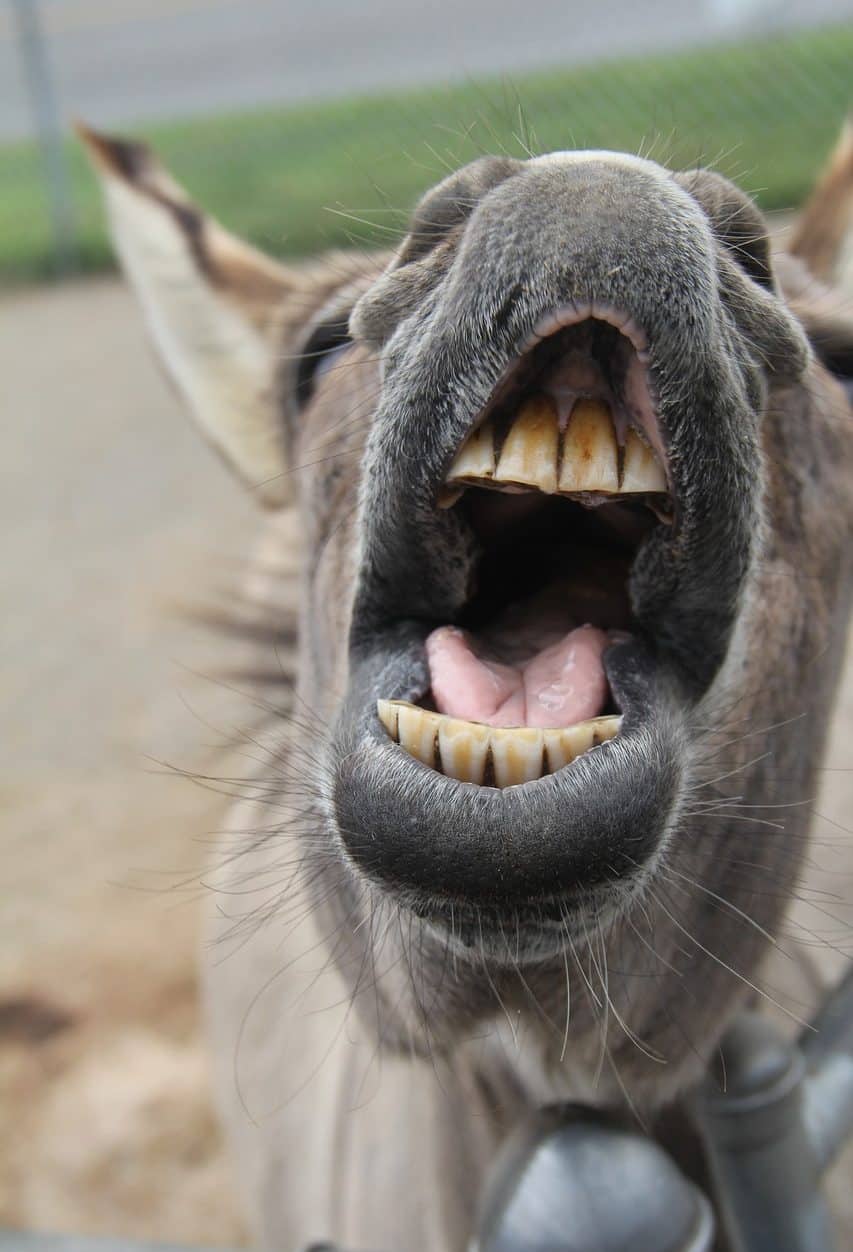
Braying is the action carried out by donkeys and mules when they bray.
Braying is what donkeys and mules do when they bray . A bray is a characteristic sound that these animals emit, especially during the mating period.
For example: “What's wrong with that donkey? He doesn't stop braying" , "When he heard the donkey bray, the boy was scared" , "The animal began to bray when he saw that his calf was being taken away" .
These species can produce braying of great intensity, which even humans can hear tens of meters away without difficulty. It is common for wild donkeys to live far from each other: braying, therefore, is essential so that they can communicate despite the distance .
Onomatopoeia of braying
Another name by which the bray is known is roznido , and the verb associated with it is roznar (in the provinces of Zamora and León , and in the community of Galicia , all three in Spain , the regionalism ornear is used). The onomatopoeia most frequently associated with this sound in our language is "hiaaa" , although it does not always represent very precisely the sequence of vowels that is perceived when hearing a bray.
Onomatopoeia can be broken into two parts joined by a script, so that it reflects the repetition so characteristic of its communication ; In this way, it is possible to say that donkeys and mules emit an intense succession of "hi-aaa, hi-aaa" .
Due to its intensity and characteristics, it is common for braying to be considered an annoying sound . Donkeys can emit extensive series of “hiaaa – hiaaa” , causing discomfort to the human ear.

By braying, a donkey can send out an alert.
The perception of the human being
This particularity means that the notion of braying is used in a pejorative way when one wants to qualify what a person does when he sings out of tune or who expresses himself without foundation or in a negative way: “I hope this man stops braying soon: his songs are already "They have fed up with me," "The only thing Claudio does is bray: is it necessary for him to complain all the time?" , “The children brayed for hours.”
It is important to clarify that, regardless of what man thinks about braying, these sounds can be very useful. Because donkeys quickly warn of the approach of predators , by braying they warn people that wolves and other dangerous animals are approaching. The braying thus functions as an alert that helps to take protective measures to take care of the livestock .
Humans managed to domesticate the donkey in ancient times, which is why braying is a sound they have known for hundreds of years. Unfortunately, this animal has since had to endure exploitation , as it is used for work, specifically to transport people and heavy loads, but also to warn of the presence of predators, as mentioned above. Knowing this, it is even more unfair for people to criticize the sound of braying in such a negative way.
Braying in mythology
Culturally, the idea of braying as a way of giving a warning is found in a mythological scene starring Hestia , the Greek goddess associated with the fire that warms and gives life to the home, and narrated by Publius Ovid Nasón , an ancient poet. Rome known simply as Ovid , famous especially for his works in verse with adaptations of Greek mythology to be appreciated by the Latin culture of his time.
In this story, the ass of Silenus , god of drunkenness, began to bray when Priapus , god of the fertility of animals and plants, entered Hestia 's chambers drunk and tried to rape her while she slept; Thanks to the animal's screams, she managed to wake up just in time to flee.
